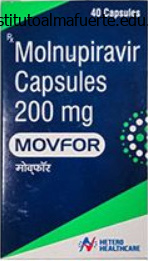



Why is Molnupiravir important in the fight in opposition to COVID-19?
Molnupiravir is an experimental antiviral drug that works by introducing errors into the genetic material of viruses, finally resulting in their dying. It was originally developed for the treatment of influenza, but its broad-spectrum activity against a quantity of forms of viruses, together with coronaviruses, makes it a promising candidate for the therapy of COVID-19.
Conclusion
Molnupiravir is important as a outcome of it's an oral treatment, meaning it can be taken at home and does not require hospitalization or intravenous administration. This could probably be a game-changer within the administration of COVID-19, because it might help reduce the burden on healthcare systems and make remedy extra accessible to a larger inhabitants.
In conclusion, Molnupiravir is a promising oral antiviral therapy for COVID-19 that has shown promising ends in early research. If proven secure and effective, it might be a priceless addition to the present arsenal of remedies for COVID-19, notably within the early levels of the disease. However, additional studies and regulatory approvals are still needed earlier than it can be extensively out there to the common public. Until then, it is necessary to continue following public health measures such as carrying masks and getting vaccinated to assist control the unfold of the virus.
Molnupiravir is a prodrug, meaning that it is inactive until it enters the physique and is converted into its lively type. Once contained in the physique, it is transformed into its energetic form, EIDD-1931, which works by concentrating on an enzyme called RNA-dependent RNA polymerase (RdRp). RdRp is essential for viruses to copy their genetic material, and by inhibiting its exercise, Molnupiravir can probably stop the virus from replicating and spreading.
What do early studies show?
If the EUA is granted, Molnupiravir might potentially be available to be used in the remedy of COVID-19 as early as the end of this yr. Merck has also entered into agreements with a quantity of nations, including the US, UK, and Australia, for the availability of Molnupiravir, should it receive regulatory approval.
Molnupiravir is at present in part 3 scientific trials, that are being conducted in multiple nations, together with the US, UK, and Brazil. The trials aim to enroll approximately 1,850 non-hospitalized sufferers with early symptoms of COVID-19. The results of those trials are expected to be out there within the coming months, and if the drug is proven to be protected and effective, Merck plans to submit an Emergency Use Authorization (EUA) utility to the US Food and Drug Administration (FDA).
Early research have proven promising outcomes for Molnupiravir within the therapy of COVID-19. In a section 2a examine, sufferers who acquired Molnupiravir inside 5 days of symptom onset had a significantly shorter time to viral clearance in comparison with those who obtained placebo. Another research in ferrets, a species that is recognized to be prone to SARS-CoV-2, confirmed that Molnupiravir reduced the quantity of virus in the animals’ nostril and lungs, and prevented transmission to naive animals.
How does it work?
What is Molnupiravir?
Furthermore, in vitro studies have proven that Molnupiravir is efficient towards a number of variants of SARS-CoV-2, including the highly transmissible Delta variant. This provides hope that Molnupiravir could presumably be a priceless device in the fight against COVID-19, even as the virus continues to mutate and new variants emerge.
Current standing and potential timeline
Molnupiravir, also identified as EIDD-2801, is an oral antiviral treatment that has been gaining consideration in latest months as a possible remedy for COVID-19. Developed by Ridgeback Biotherapeutics in collaboration with Merck & Co., Molnupiravir is presently in section three clinical trials and has shown promising results in early research.
Rehman K, et al: Haemolysis associated with the treatment of malaria with artemisinin derivatives: a systematic review of current evidence. Bukirwa H et al: Artesunate plus pyronaridine for treating uncomplicated Plasmodium falciparum malaria. Ben Salah A et al: Topical paromomycin with or without gentamicin for cutaneous leishmaniasis. Burza S et al: Five-year field results and long-term effectiveness of 20 mg/kg liposomal amphotericin B (Ambisome) for visceral leishmaniasis in Bihar, India. Hailu A et al: Geographical variation in the response of visceral leishmaniasis to paromomycin in East Africa: A multicentre, open-label, randomized trial. Jackson Y et al: Tolerance and safety of nifurtimox in patients with chronic Chagas disease. Lutje V, Seixas J, Kennedy A: Chemotherapy for second-stage human African trypanosomiasis. Rassi A Jr, Rassi A, Marcondes de Rezende J: American trypanosomiasis (Chagas disease). Sundar S et al: Comparison of short-course multidrug treatment with standard therapy for visceral leishmaniasis in India: An open-label, non-inferiority, randomised controlled trial.
Movfor 200mg